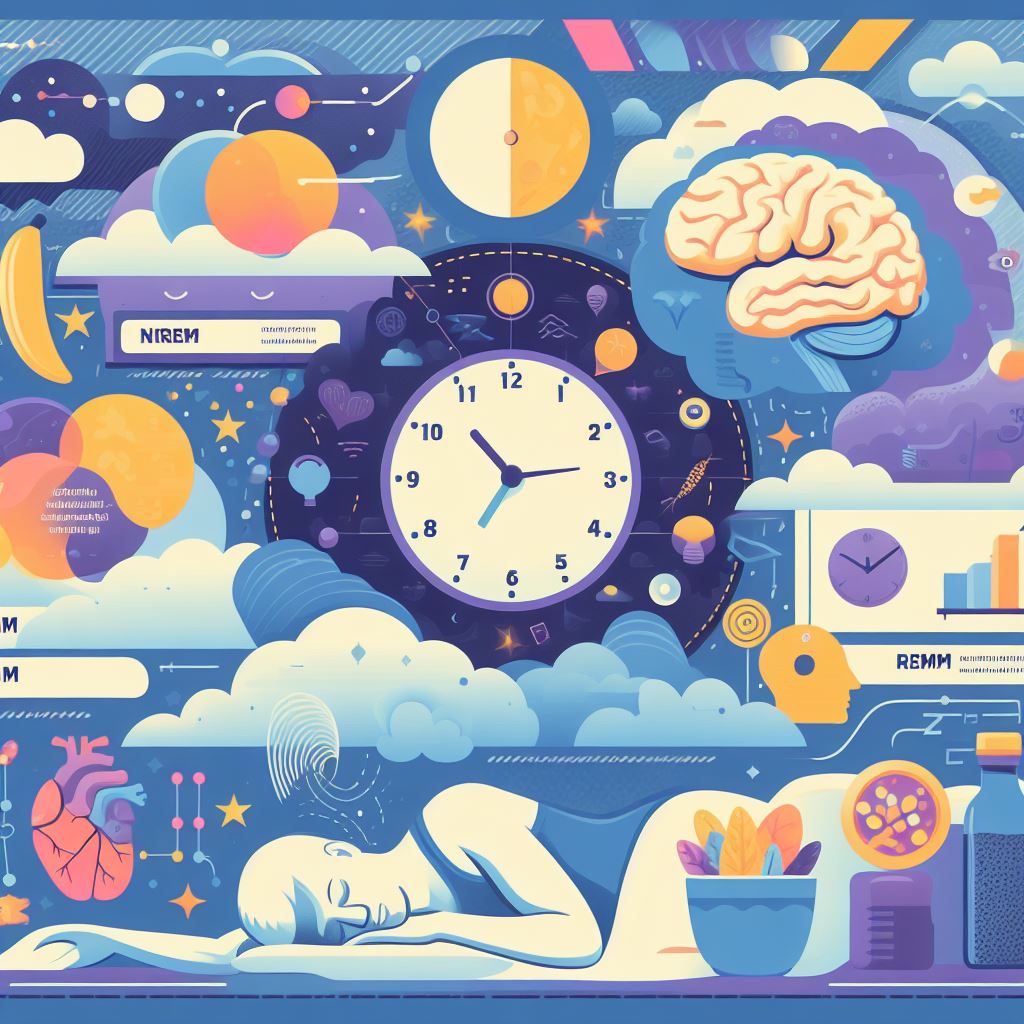
The Science of Sleep: Hacks for Better Rest
“Sleep is the golden chain that ties health and our bodies together.” - Thomas Dekker
Sleep, or as some might call it, slumber or repose, is not just a nightly ritual that we need to function, but a complex biological process essential for our overall well-being. This article seeks to unlock the secrets of sleep and provide actionable hacks, especially for adults aged 25-60 who face disturbances in their night's rest.
The Significance of Different Sleep Stages
Our nightly nap is not as straightforward as one might think. It is a cycle of various stages, each with its significance:
-
NREM (Non-Rapid Eye Movement) Sleep: This is broken down further into:
- Stage 1: A light sleep where you can be easily awakened.
- Stage 2: The onset of sleep where your heart rate slows down.
- Stage 3: The deepest and most restorative sleep where the body repairs and grows.
-
REM (Rapid Eye Movement) Sleep: A phase associated with vivid dreams.
Understanding these cycles is crucial. Research suggests that deep sleep, for instance, plays a pivotal role in brain function and memory consolidation. As Matthew Walker points out in "Why We Sleep", the quality of our sleep directly affects our ability to think, learn, and process emotions.
Sleep’s Impact on Health and Well-being
Sleep is not merely about restfulness; it affects every facet of our health:
- Physical Health: Deep sleep helps in growth, repair of cells, and boosts immune function.
- Mental Health: Adequate REM sleep is pivotal for cognitive function, concentration, and emotional stability.
- Lifestyle Benefits: Good sleep improves productivity, reduces stress, and even aids in weight management.
Sadly, insomnia or inadequate sleep has been linked to a myriad of health problems from heart disease to diabetes, underlining the need for quality rest.
What Disturbs Our Sleep?
Several factors can throw our sleep cycles out of balance:
- Stress and Anxiety: The most common culprits that keep people tossing and turning.
- Diet: Consuming caffeine or alcohol close to bedtime.
- Physical Health: Conditions like sleep apnea or restless leg syndrome.
- Environment: A room that's too hot, cold, or noisy.
Hacks to Improve Sleep Quality
The road to a better night's rest is paved with these science-backed techniques:
- Consistent Sleep Schedule: Going to bed and waking up at the same time.
- Bedroom Environment: Ensure a dark, quiet, and cool environment.
- Limit Screen Time: The blue light from screens can mess with our sleep hormones.
- Mindfulness and Relaxation Techniques: Techniques like meditation can help in achieving better rest.
Diet, Exercise, and Sleep: The Golden Triangle
Our daily activities, especially what we eat and how we move, are intricately linked to our sleep:
- Diet: Foods rich in tryptophan, magnesium, and calcium can promote sleep.
- Exercise: Regular physical activity can help you fall asleep faster and deepen your sleep.
The Cutting Edge of Sleep Science
Recent studies have underscored the importance of sleep. For example, a study from the National Sleep Foundation highlighted that individuals who got quality sleep had a reduced risk of chronic illnesses. Such findings reiterate the need for taking our nightly repose seriously.
Conclusion: Prioritize Your Sleep
Sleep is not a luxury but a necessity. Whether you're a health enthusiast or a professional striving for productivity, remember: every good day begins the night before with a good sleep. Take steps today to ensure your nights are restful and rejuvenating. After all, as the saying goes, “The future depends on what we do in the present,” and the present demands a good night's sleep.
References:
- "Why We Sleep" by Matthew Walker.
- National Sleep Foundation's Official Website.
- Research articles from PubMed on sleep science.
- Interviews and insights from renowned sleep experts and therapists.





